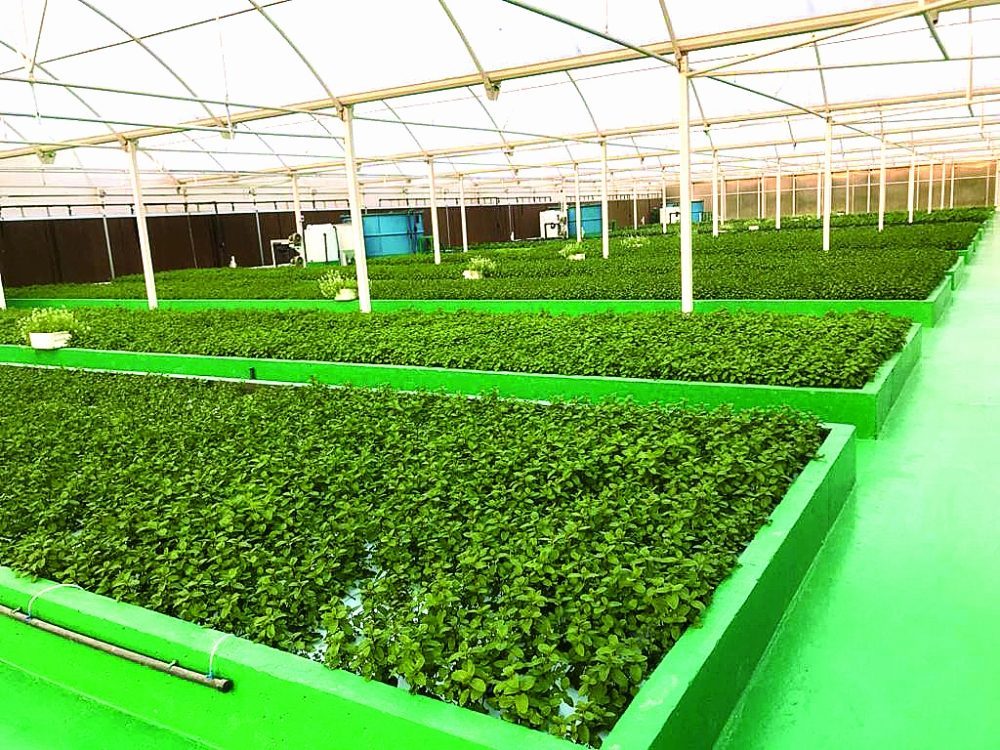Agrico company starts production in the biggest aquaculture project in Qatar.
Qatar’s national agricultural project began producing on Tuesday, marking another milestone in the country’s self-sustainability plan.
The project, developed by Agrico through an aquaponic system, refers to a food production system that couples aquaculture – raising aquatic animals with hydroponics –cultivating plants in water.
The production capacity of the project estimates 32,000 tonnes per year of various vegetables, executive director of Agrico for agricultural development, Nasser Al Khalaf noted in a local media report.
The project is now in an experimental phase on a 4,000 m2 land occupied for the indoor horizontal farming system, Al Khalaf added in a media report on Wednesday.
The adopted system advantage is the fact that it replaces soil and fertilisers with another type that is produced by fish.
Fish fertilisers are healthier than chemical ones and are rich with primary nutrients that are necessary for plants. This helps increase soil fertility.
The aquaponic system goes through a process in which it collects fish waste and transports it to the roots of the plant through water pipes.
The plant then absorbs nutrients from the fish waste while filtering water for any residue, and sends it back to the fish tanks.
Finally, the fish waste then transforms into healthy fertilisers through a biological filter that contains a bacteria which works by mutating ammonia into soil effective for planting.
The executive director of Agrico said the project is a turning point in the local agricultural sector.
By implementing this system, there is no need to prepare stony and calcareous soils that constitute the type of soil found in Qatar.
This will make investment in agriculture much more efficient, Al Khalaf added.
Read also: Qatar to develop its first solar agriculture greenhouse
The technology will also ease the way and attract experts and investors interested in the local agricultural sector.
Aquaponic is an automatic system that can be set manually to pump water and oxygen in water and filter it according to the quantity needed for fish and plants.
It is also recommended in agriculture since it does not occupy much space while producing enough crops to generate income.
Nonetheless, it provides healthy vegetables that are chemical-free and also provides opens job opportunities for local residents.
The system can also be built on rooftops, gardens, and backyards.
While it beautifies spaces and provides quality food supplies, such as vegetables and fish all year round, it can also generate income.
Follow Doha News on Twitter, Instagram, Facebook and Youtube







